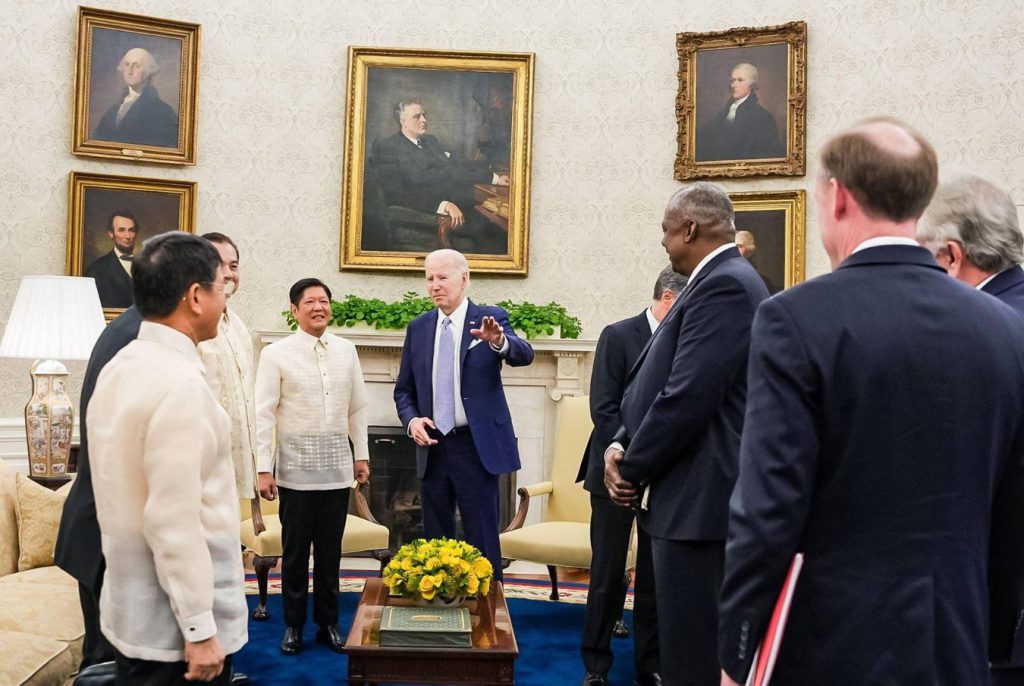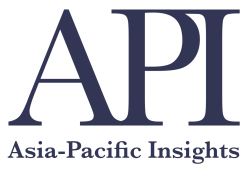Biden to host Marcos, Kishida in historic trilateral summit in Washington

President Ferdinand Marcos Jr. and US President Joseph Biden met in Washington last May 2023 to discuss security and trade ties, among over issues. Photo from PCOO.
By Manuel Mogato | Date 03-25-2024
MANILA — US President Joe Biden will host two Asian allies next month in Washington to reaffirm the United States’ “ironclad” security commitment as tensions rise in disputed waters in the East and South China Sea.
Biden would separately meet with Filipino leader Ferdinand Marcos Jr. and Japanese Prime Minister Fumio Kishida before all three hold a trilateral dialogue.
For the Philippines, it will be the first triangular cooperation with meetings with two allies focusing on security and trade relations.
But for the United States and Japan, it will be the second of such trilateral engagements. Biden and Kishida met with their South Korean counterpart, Yoon Suk Yeol, in August 2023 at Camp David.
In January 2024, senior diplomats from the three allies met to institutionalize the trilateral dialogue.
The US-Japan- Philippines summit also hopes to formalize a second trilateral dialogue in the Indo-Pacific region to increase deterrence against China’s growing coercive activities in the area.
Security experts said the region’s web of trilateral cooperation would boost the alliance and enhance the capability of security partners.
The US could also create another three-nation dialogue with Australia, Japan, Australia, and the Philippines.
A larger alliance with Australia, India, Japan, and the United States would involve countries like Vietnam, South Korea, and Israel.
Canada, France, Germany, and the United Kingdom are also interested in the region and have invited Japan and South Korea to the North Atlantic Treaty Organization (NATO).
However, Philippine Foreign Affairs Secretary Enrique Manalo reassured other states in the Indo-Pacific region that the trilateral cooperation does not target any country.
“They are not aimed at any third country,” Manalo told a news conference after bilateral talks with US Secretary of State Antony Blinken.
“Let me just stress that this is a partnership aimed to produce greater cooperation between the Philippines and the United States, specifically aimed, among others, at improving our capacity to respond to humanitarian assistance and disaster relief (HADR) and also to strengthen our national security and defense needs.”
“The main purpose behind this is to enhance Philippine defense and security interests and operations on humanitarian issues,” he added.
For his part, Blinken said, “None of these are directed against anyone or anything.”
The trilateral summit is “for trying to realize the vision of all the countries involved in free and open Indo-Pacific,” Blinken said.
“It’s not designed against anyone,” he said. “It’s to realize a shared vision for the future to benefit all these countries… whether it’s an economic development, whether it’s dealing with climate change, with food security, of course, upholding international law.”
He said the relationship between the two allies – the Philippines and Japan – is “rock solid.”
The triangular alliance would be completed once the Philippines and Japan signed the Reciprocal Access Agreement, a deal similar to the Visiting Forces Agreement Manila had with Washington in 1998.
The Pentagon plans to establish a unified military command for the United States and Japan. It would be easy to bring in the Philippines since all three countries share common and mutual security interests.
That would help increase the Philippines’ capability to deter hostile states and enhance regional stability and security.
